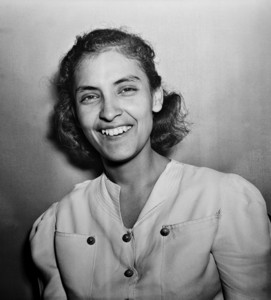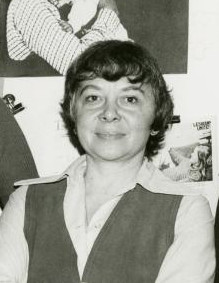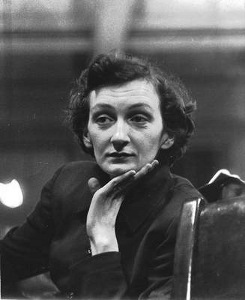Related Research Articles

The Industrial Workers of the World (IWW), whose members are nicknamed "Wobblies", is an international labor union founded in Chicago in 1905. The nickname's origin is uncertain. Its ideology combines general unionism with industrial unionism, as it is a general union, subdivided between the various industries which employ its members. The philosophy and tactics of the IWW are described as "revolutionary industrial unionism", with ties to socialist, syndicalist, and anarchist labor movements.

The United Farm Workers of America, or more commonly just United Farm Workers (UFW), is a labor union for farmworkers in the United States. It originated from the merger of two workers' rights organizations, the National Farm Workers Association (NFWA) led by César Chávez, Dolores Huerta, and Gilbert Padilla and the Agricultural Workers Organizing Committee (AWOC) led by organizer Larry Itliong. They allied and transformed from workers' rights organizations into a union as a result of a series of strikes in 1965, when the Filipino-American and Mexican-American farmworkers of the AWOC in Delano, California, initiated a grape strike, and the NFWA went on strike in support. As a result of the commonality in goals and methods, the NFWA and the AWOC formed the United Farm Workers Organizing Committee on August 22, 1966. This organization was accepted into the AFL–CIO in 1972 and changed its name to the United Farm Workers Union.

Solidarity is a revolutionary multi-tendency socialist organization in the United States, associated with the journal Against the Current. Solidarity is an organizational descendant of the International Socialists, a Third Camp Marxist organization which argued that the Soviet Union was not a "degenerated workers' state" but rather "bureaucratic collectivism," a new and especially repressive class society.

Service Employees International Union (SEIU) is a labor union representing almost 1.9 million workers in over 100 occupations in the United States and Canada. SEIU is focused on organizing workers in three sectors: healthcare, including hospital, home care and nursing home workers; public services ; and property services.

Transport Workers Union of America (TWU) is a United States labor union that was founded in 1934 by subway workers in New York City, then expanded to represent transit employees in other cities, primarily in the eastern U.S. This article discusses the parent union and its largest local, Local 100, which represents the transport workers of New York City. TWU is a member of the AFL–CIO.
The civil rights movement (1896–1954) was a long, primarily nonviolent action to bring full civil rights and equality under the law to all Americans. The era has had a lasting impact on American society – in its tactics, the increased social and legal acceptance of civil rights, and in its exposure of the prevalence and cost of racism.

Emma Beatrice Tenayuca was an American labor leader, union organizer, civil rights activist, and educator. She is best known for her work organizing Mexican workers in Texas during the 1930s, particularly for leading the 1938 San Antonio pecan shellers strike. She was also known for her involvement with the U.S. Communist Party to advocate for Mexicans and Mexican Americans.
Justice for Janitors (JfJ) is a social movement organization that fights for the rights of janitors across the US and Canada. It was started on June 15, 1990, in response to the low wages and minimal health-care coverage that janitors received. Justice for Janitors includes more than 225,000 janitors in at least 29 cities in the United States and at least four cities in Canada. Members fight for better wages, better conditions, improved healthcare, and full-time opportunities.

Elizabeth Gurley Flynn was an American labor leader, activist, and feminist who played a leading role in the Industrial Workers of the World (IWW). Flynn was a founding member of the American Civil Liberties Union and a visible proponent of women's rights, birth control, and women's suffrage. She joined the Communist Party USA in 1936 and late in life, in 1961, became its chairwoman. She died during a visit to the Soviet Union, where she was accorded a state funeral with processions in Red Square attended by more than 25,000 people.

Ruth Simpson was the founder of the United States' first lesbian community center, an author, and former president of Daughters of Bilitis, New York.

Anne McCarty Braden was an American civil rights activist, journalist, and educator dedicated to the cause of racial equality. She and her husband bought a suburban house for an African American couple during Jim Crow. White neighbors burned crosses and bombed the house. During McCarthyism, Anne was charged with sedition. She wrote and organized for the southern civil rights movement before violations became national news. Anne was among nation's most outspoken white anti-racist activists, organizing across racial divides in environmental, women's, and anti-nuclear movements.

Socialist Alternative is a Trotskyist political party in the United States. SAlt formed as Labor Militant in 1986, when members of the Committee for a Workers' International created a US branch.
Benjamin DeWayne Amis, known as B. D. Amis, was an African-American labor organizer and civil rights leader. Particularly influential in the fight for African Americans and workers during the period of official segregation in the South and informal discrimination throughout the country, Amis is most remembered for his militant Communist activism on behalf of the notable legal cases of the falsely-accused Scottsboro Boys, the African-American organizer Angelo Herndon, as well as the white labor leader Tom Mooney.

The 2012 presidential campaign of Jill Stein was announced on October 24, 2011. Jill Stein, a physician from Massachusetts, gave indication in August 2011 that she was considering running for President of the United States with the Green Party in the 2012 national election. She wrote in a published questionnaire that she had been asked to run by a number of Green activists and felt compelled to consider the possibility after the U.S. debt-ceiling crisis which she called "the President's astounding attack on Social Security, Medicare and Medicaid – a betrayal of the public interest."
Eric Mann is a civil rights, anti-war, labor, and environmental organizer whose career spans more than 50 years. He has worked with the Congress of Racial Equality, Newark Community Union Project, Students for a Democratic Society (SDS), the Black Panther Party, the United Automobile Workers and the New Directions Movement. He was also active as a leader of SDS faction the Weathermen, which later became the militant left-wing organization Weather Underground. He was arrested in September 1969 for participation in a direct action against the Harvard Center for International Affairs and sentenced to two years in prison on charges of conspiracy to commit murder after two bullets were fired through a window of the Cambridge police headquarters on November 8, 1969. He was instrumental in the movement that helped to keep a General Motors assembly plant in Van Nuys, California open for ten years. Mann has been credited for helping to shape the environmental justice movement in the U.S. He founded the Labor/Community Strategy Center in Los Angeles, California and has been its director for 25 years. In addition, Mann is founder and co-chair of the Bus Riders Union, which sued the Los Angeles County Metropolitan Transportation Authority for what it called “transit racism”, resulting in a precedent-setting civil rights lawsuit, Labor Community Strategy Center et al. v. MTA.

Josephine Casey was a labor organizer and leader, and a women's rights advocate.

Anne Burlak Timpson was an early twentieth-century leader in labor organizing and leftist political movements. A member of the National Textile Workers Union and Communist Party, Burlak was jailed numerous times for sedition. Based in New England for much of her adult life, Burlak was a candidate for local and state offices in Rhode Island and played a major role in crafting the National Recovery Administration's workplace standards for textile unions during the New Deal era.
Jonathan Rosenblum is a community and labor activist, writer and a union and community organizer based in Seattle, WA.
Workers for the Scripto company in Atlanta, Georgia, United States, held a labor strike from November 27, 1964, to January 9, 1965. It ended when the company and union agreed to a three-year contract that included wage increases and improved employee benefits. The strike was an important event in the history of the civil rights movement, as both civil rights leaders and organized labor activists worked together to support the strike.
References
- 1 2 3 "Inventory of the Theresa El-Amin Papers, 1960s-2010". Rubenstein Rare Book and Manuscript Library, Duke University. Archived from the original on 11 March 2015. Retrieved 16 December 2011.
- ↑ "SNCC passes the torch | The CLog". Creative Loafing Charlotte. February 29, 2008. Archived from the original on 8 February 2017. Retrieved 7 February 2017.
- ↑ "Civil Rights, Students & 1968: Where are we Today?" (PDF). Archived from the original (PDF) on 15 June 2010. Retrieved 7 February 2017.
- ↑ "BNA". Government Employee Relations Report. 25 (1195). Bureau of National Affairs: 100. January 5, 1987.
Union organizer Theresa El-Amin told BNA that working conditions, not salaries, prompted the unit to seek representation. Over the past 10 years, Cleveland's library staff has been cut by more than half, she said, dropping from 1,000 to 450.
- ↑ "The Color Of Green « Green Pages". Green Pages. Fall 2007. Archived from the original on 24 August 2011. Retrieved 16 December 2011.
- ↑ "Theresa El-Amin Arrested". Southern Anti-Racism Network. February 5, 2013. Archived from the original on February 25, 2013. Retrieved 13 February 2013.